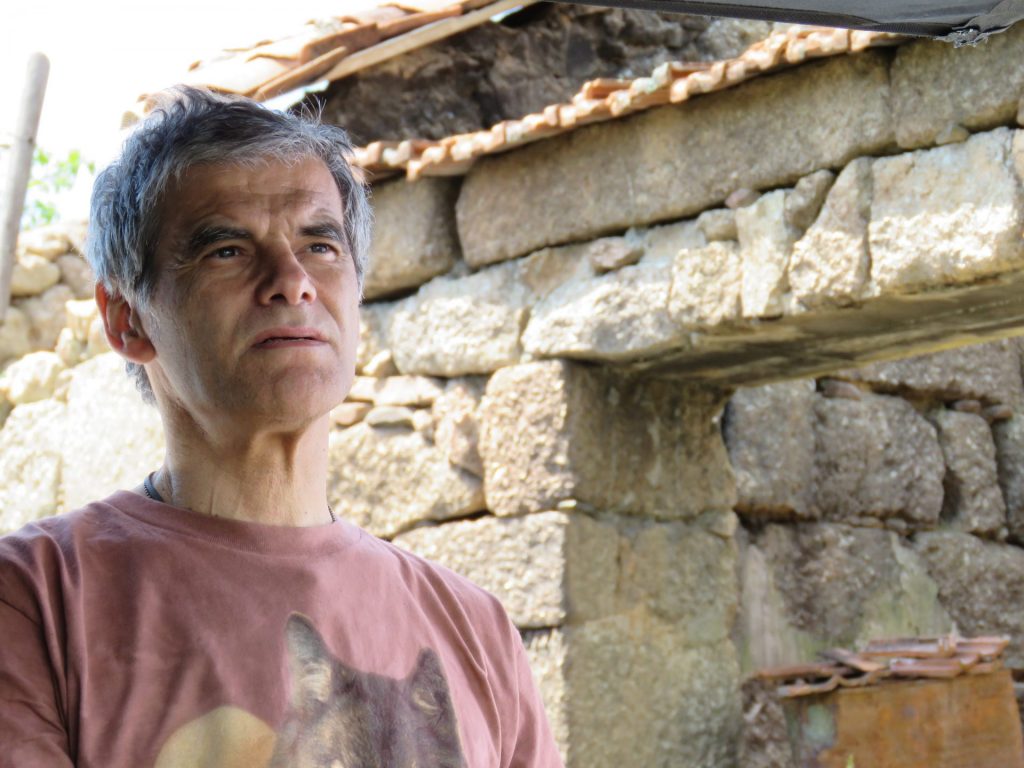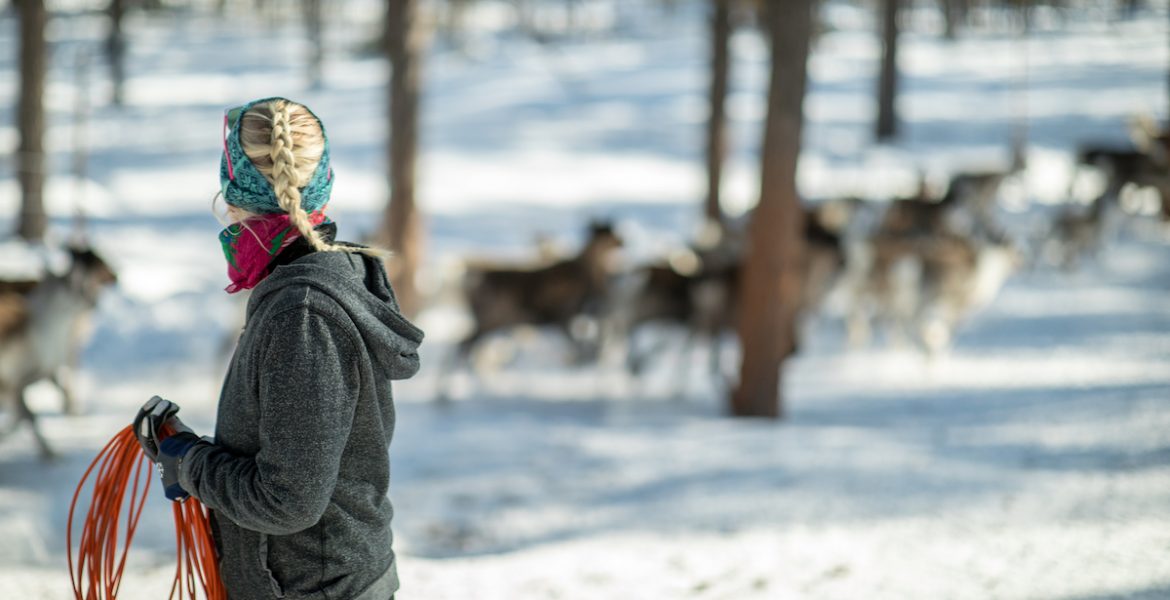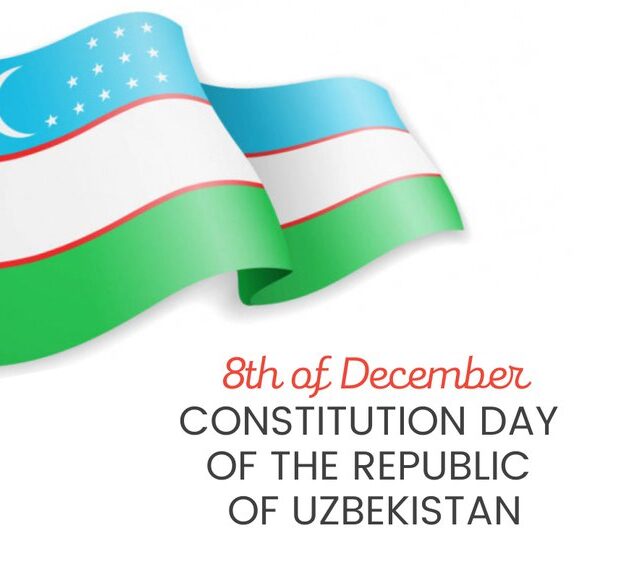The European Court of Justice announced its judgement in the landmark “People’s Case” initiated by 10 families and the indigenous Saami youth organisation whose fundamental rights are affected by the climate crisis. The Court decided to uphold the decision of the first instance court (European General Court) and to dismiss the case on procedural grounds. This decision displays a “fear of action by citizens”, and once again, sheds light on the EU’s lack of access to justice in environmental matters.
In 2018, families from Portugal, Italy, France, Germany, Romania, Kenya, Fiji and the association Sáminuorra, representing the indigenous Sámi youth came together to take the EU to court over its previous 2030 climate target to reduce emissions by at least 40%. The plaintiffs argued that the EU’s target was objectively insufficient to prevent the climate crisis and failed to protect their human rights, such as their right to life, health, occupation and property, which are already being affected by the worsening impacts of climate change.
Despite all the scientific evidence provided by the plaintiffs in their application and the Court’s acknowledgement that the climate crisis is hitting them, the European Court of Justice refused to speak about the merits (meaning the EU’s climate inaction and its impacts on fundamental rights), but only focused on procedural rules. The Court announced that the plaintiffs did not have a right to challenge the EU for its climate inaction, based on old case law dating back to the 1960s, whereby an individual must be “uniquely” affected by an EU legislative act in order to be allowed to challenge it.
The Court fears that, if this criterion of uniqueness is not applied, many people will then bring cases to challenge the EU on environmental grounds. This stands in stark contrast with the basic human rights principle, as the EU courts’ interpretation means that the more universal and severe the problem, the fewer persons are able to seek legal protection in EU courts.
In addition, the EU Court failed to answer the plaintiffs question on where and how the plaintiffs could seek protection of their rights if those rights are infringed by EU legislations. This right to legal remedies is set out in Art 47 of the EU Charter. The Court, unfortunately, makes no attempt to address this issue, the judgement simply says: not here.
Increasing number of national courts in Europe hold Member States accountable for the climate crisis and in some cases, order them to accelerate greenhouse gas emission reductions to protect citizens from current and future climate impacts. Recently, the European Court of Human Rights granted priority to the climate case initiated by 6 young Portuguese on the basis of the “importance and urgency of the issues raised”.
With this decision, the EU courts fail to join the tidal wave of national and supranational Courts who play an important role to hold governments accountable for their climate inaction.
Despite the fact that the EU Courts refused to speak about the climate crisis, a massive number of citizens, scientists and NGOs supported the plaintiffs and eventually made the EU to increase its 2030 climate target to reduce greenhouse gas emissions to at least 55%. However this is still far from putting the EU on track to do its fair share under the Paris Agreement to limit global temperature rise to 1.5°C.
The decision of the EU Court to close its doors to people hit by climate impacts received criticism from plaintiffs, legal experts and civil society for its failure to address the climate emergency.
Roda Verheyen, coordinating lawyer of the People’s Climate Case said: “These families put their trust in the EU legal system to protect their rights. But the EU courts failed to interpret existing rules in the context of climate change. This judgement is wholly unconvincing and only speaks of the fear of action by citizens. On the contrary: granting access to justice to its citizens would not have hurt the EU but made it stronger. ”
Climate Action Network (CAN) Europe, the leading NGO coalition fighting dangerous climate change in Europe, reminded that the EU is not yet on track to fully implement the promises it made in the 2015 Paris Climate Agreement, and that more needs to be done.
Wendel Trio, Director of the Climate Action Network (CAN) Europe said: “With climate urgency growing day by day, the EU needs to step up climate action and EU citizens are looking at their courts to help them avoid dangerous climate change. It is a shame the European Court of Justice distanciates itself from other courts by refusing to take up the matter and hiding itself beyond outdated procedural rules. If the EU is to make sense to its citizens, it will need to recognise that accountability is key to ensure a well functioning democracy. The EU urgently needs to step up the protection of its citizens, by both increasing climate action and providing access to justice to all its citizens.”

“The EU urgently needs to step up the protection of its citizens, by both increasing climate action and providing access to justice to all its citizens.”
Wendel Trio
The plaintiffs of the People’s Climate Case reminded the EU Court and EU lawmakers that they cannot address the climate crisis by turning deaf ears to citizens affected by climate change.
Sanna Vannar, representing the Indigenous Sámi youth organisation, said: “The Sámi people live in the middle of the climate crisis every day. We see how the climate crisis affects the reindeer, nature and our culture. We have been talking about these changes and their impacts for so long now. Unfortunately no one has listened. It makes me so angry and frustrated that the EU does not take this problem seriously and addresses it like an emergency – because it is an emergency for Europe’s indigenous peoples.”
Maike and Michael Recktenwald, German plaintiffs of the case said: “We started this case to demand climate justice for the people who live on islands like us and for the next generations. We see the impacts of climate change every day on our island.”
“The Court’s decision will not make us stop. The climate movement will continue getting bigger, stronger and demanding justice as more and more people are hit by the climate crisis. Together with our son Lüke who is now challenging the German Climate Law at the Federal Constitutional Court, we will keep up our legal fight to hold big emitter countries accountable, to enforce consistent climate protection and to guarantee our fundamental rights.”
Alfredo Sendim, plaintiff and Portuguese farmer said: “The court’s decision is disappointing, but we will not give up. We will continue seeking protection of our rights and demand climate protection until EU decision makers listen to their citizens and take climate change as a priority for Europe.”

“We will continue seeking protection of our rights and demand climate protection until EU decision makers listen to their citizens and take climate change as a priority for Europe.”
Alfredo Sendim
“Portugal is hardly hit by frequent droughts. Today it is almost impossible to adapt to the current climate conditions and continue our sustainable agriculture farming that seeks to follow the cycle of nature. We are still in time to change the course of history and have a safer future for next generations, but to do so, we must act now. Otherwise the future of my children and those of many other citizens will be compromised.”
Armando Carvalho, plaintiff and Portuguese forested land owner who lost forest during the wildfires in 2017 said: “With the recent decision of the Member States to increase the EU’s 2030 climate target, even the lawmakers agreed with us that the EU can and must do more to protect citizens from the climate crisis. This gives us strength to continue demanding that the EU stops doing harm to its citizens and protects our lives, livelihoods and rights from the disastrous consequences of climate change.”

“What are the European institutions for if they don’t act to protect the future of Europe and its citizens? What are the Treaties, directives and legislations for if not to safeguard our future? How good can European officials and policy-makers be if they cannot deal with the greatest challenge facing humanity?”
Armando Carvalho
Maurice Feschet, plaintiff and French lavender farmer said: “Consecutive droughts and heatwaves caused dramatic consequences on my family’s livelihood and on many European citizens. Today, the hope that we put in the legal system to protect us and our co-plaintiffs has failed. But we are not giving up. We will keep fighting for justice and for the protection of fundamental rights that are threatened by the unequal and diverse impacts of climate change. We might have lost today but our voices are getting louder to ensure a viable future for present and next generations.”




